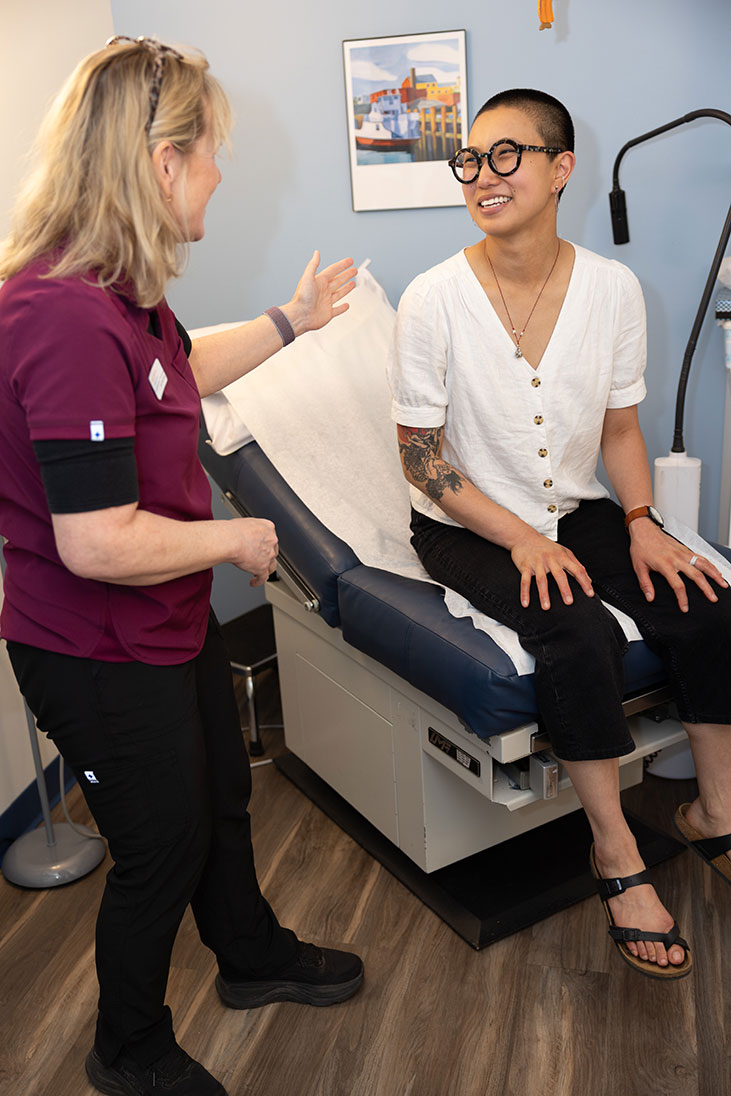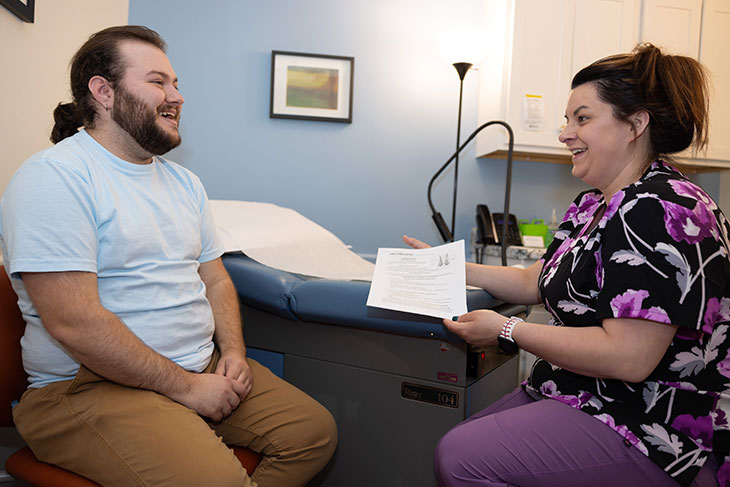



Maine Family Planning provides affordable reproductive health care services for all Mainers, help for new parents and families, and gender-affirming health services. Some of our services are available online.
Whether you want to volunteer for Maine Family Planning, donate to our organization, contact your legislators, attend one of our events, or otherwise help to advance reproductive justice, you’re in the right place. Maine Family Planning offers ample opportunities to get involved—and we can only do our work with folks like you. We look forward to hearing from you and standing together for reproductive health care access and rights.

Navigating your personal healthcare can be tricky and it’s normal to have a lot of questions. If you can’t find what you’re looking for here, please call 207-922-3222 and speak with one of our knowledgeable staff members.
A Virtual Visit lets you see an expert Maine Family Planning provider without having to travel or leave home. A telehealth appointment is a lot like your regular in-person visit, just over video. All you need is Internet access and a smartphone, tablet, or computer with a camera.
learn more hereThere are three ways to access emergency contraception in Maine.
learn more hereAll of our services are confidential. We encourage all teens to discuss their family planning visit with their parents or guardians. And we’re happy to report that more than half of our young patients tell us that they have talked with a parent or guardian about their decision to visit a family planning clinic.
learn more here
We want to address some confusion that’s emerged in recent community conversations about Maine Family Planning’s services. We’re not closing. We’re not abandoning care. We’re here for Mainers, always. What’s Actually Changing and Why Effective October 31st, 2025, Maine Family Planning will discontinue primary care services at three of our locations: Houlton, Ellsworth, and Presque […]
Click Here to Read MoreAugusta, ME – Due to a new federal law that bans many health providers who provide abortion care from billing Medicaid for reimbursement, Maine Family Planning (MFP) has informed its hundreds of primary care patients that it must close its primary care practice, effective October 31, 2025. Earlier this summer, Congress rescinded MFP’s Medicaid funding […]
Click Here to Read MoreProtect reproductive freedom with a gift to Maine Family Planning.
Every dollar you give stays in Maine to support our neighbors.